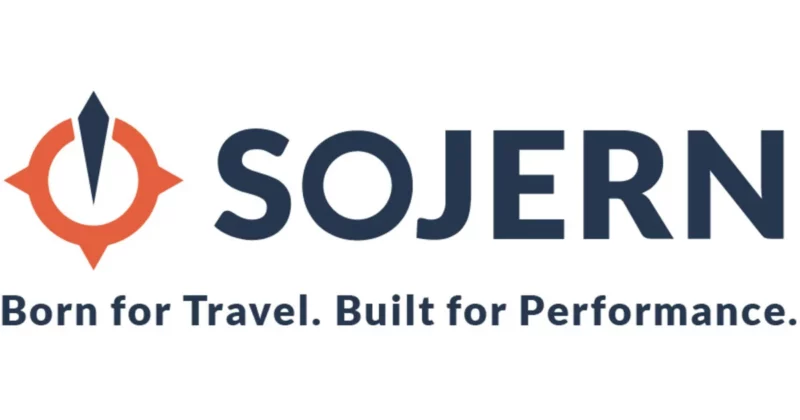
In the face of low or flat rate growth, hotels will turn to ecommerce, actionable data insights, and generative AI to maintain profitability.
What’s on the cards for hotel performance 2025? More low rate growth, a slightly more positive outlook for RevPAR in the US than in Europe, but what seems sure is that hotels will not be able to count on the increases seen during the immediate post-pandemic bounce.
“Hotels will have to be more creative in adapting to different ways of working without impacting on customer service, to combat rising costs so as not to hit the bottom line,” said Robert Holland, managing director UK & Ireland, HotelPartner Revenue Management.
“We expect to see hotels working to leverage their guest data and create revenue strategies tailored to their properties, drawing on their experience of the local area and collaborating with technology to drive profitability.”
Ecommerce
One particular focus is to follow the ecommerce path and capture more ancillary revenue at the booking stage.
Victoria-Jungfrau Grand Hotel & Spa, Interlaken, Switzerland, ran a digital marketing campaign to increase ancillary spend on items like spa treatments, kids clubs, room amenities, and afternoon tea. The return on ad spend was 17 to one, and the property generated an additional $34,000 in six weeks.
Lux Le Morne Resort, Mauritius, offers experiences including swimming with wild dolphins and a 500 candles dinner. At the room booking stage, the resort generated $27,000 in ancillary revenue during 2024.
Both of these hotels work with Sabre’s retail growth team to configure their websites and run conversion campaigns. Sabre said that on average its EMEA hotels receive $275 in ancillary spend per booking.
Other providers of ecommerce services include Journey and Profitroom. Journey’s ecommerce platform reportedly increases average order value by 10 per cent. Profitroom says it can integrate targeted deals without the need for manual intervention, for instance, recognising guests booking two-person weekend stays over Valentine’s day are receptive to romantic getaway deals or family bookings targeted with ‘kids eat free’ deals.
Actionable data
Moving on from the specifics of shopping carts and the initial booking stage, business intelligence (BI) will play an ever more important role in hotel operations.
The recent $370m investment in Lighthouse, a BI platform with 65,000 hospitality clients, underlines how the investment community is banking on data-driven decision making.
Lighthouse processes 400 terabytes of travel and market data daily, equivalent to 100 million high-quality photos or 200,000 hours of HD video. This kind of big data analysis uncovers patterns and insights that smaller datasets might miss, helping businesses make better decisions, according to Lighthouse’s investors KKR.
So far, BI solutions have tended to only collect data and report it. Now these services are poised to make automatic recommendations or trigger actions, said John Burns, president, Hospitality Technology Consulting.
To help with the transition to actionable data, Lighthouse acquired HQ revenue, a Berlin-based revenue management company in June 2024, and said: “The acquisition of HQ revenue reinforces Lighthouse’s continued commitment to reducing data complexity by delivering actionable insights.”
The obvious and already widespread application here is dynamic pricing, but there are several areas where recommendations or automation can occur, such as marketing campaigns, labour scheduling, and inventory management.
In November 2024 Sabre launched SynXis Insights, a BI tool offering six dashboards: channel performance, lead time insights, performance overview, rate/room performance, time of booking insights, and travel agent performance. Early adopters include HotelREZ Hotels & Resorts, Hard Rock Hotels, and COHO Reservations. There are plans to integrate additional data sources and advanced analytic capabilities.
“Imagine the world where you have all data sources, also from partners, all in one module. And you can query that data and derive actionable insights,” said Amy Read, VP innovation, Sabre.
Holland at HotelPartner Revenue Management, noted that unique events, such as concerts, strikes, or weather changes, are often overlooked by algorithms so revenue managers still need to exercise their local market knowledge to complement the technology.
Concerts by Oasis and Coldplay in 2025 are expected to repeat the positive impact on hotel revenues made by Taylor Swift’s Eras world tour in 2023 and 2024.
Better prediction of hurricanes and torrential flooding would save lives and businesses. In December 2024 Google DeepMind unveiled GenCast, an AI weather prediction model that it says outperforms traditional forecasts of up to 15 days and is better at forseeing extreme events.
Read commented: “Innovation can only happen with the right data. AI is only as good as the data that feeds it.”
In-house or outsource?
What is the best approach to integrating generative AI into business practices and hotel operations? The question continues the longstanding debate over whether it is better to keep hotel technology in-house or outsource it.
Lionel Anidjar, hotels project director, Global Asset Solutions, said: “If you know your line of business and what you are doing, often what companies are trying to sell us is something we’d be able to do by ourselves with a paid-for version of ChatGPT.”
Vibhu Gaind, CIO, RBH Hospitality Management, added: “We will see a transition from indirect use through vendors to direct application of mainstream AI tools like ChatGPT and CoPilot. Integration into datasets and tools like Office 365 will drive efficiency and productivity.”
Others feel that external specialists are the way to go. Kevin Edwards, CEO, Hospitality Technology Advisory, said: “As with any IT project, hotels must think about why they want AI and how they use it. If not, it will be another wasted investment. AI offers huge potential, but there is a danger that, by not using a specialist to deploy it, you will miss out on the benefits.”





